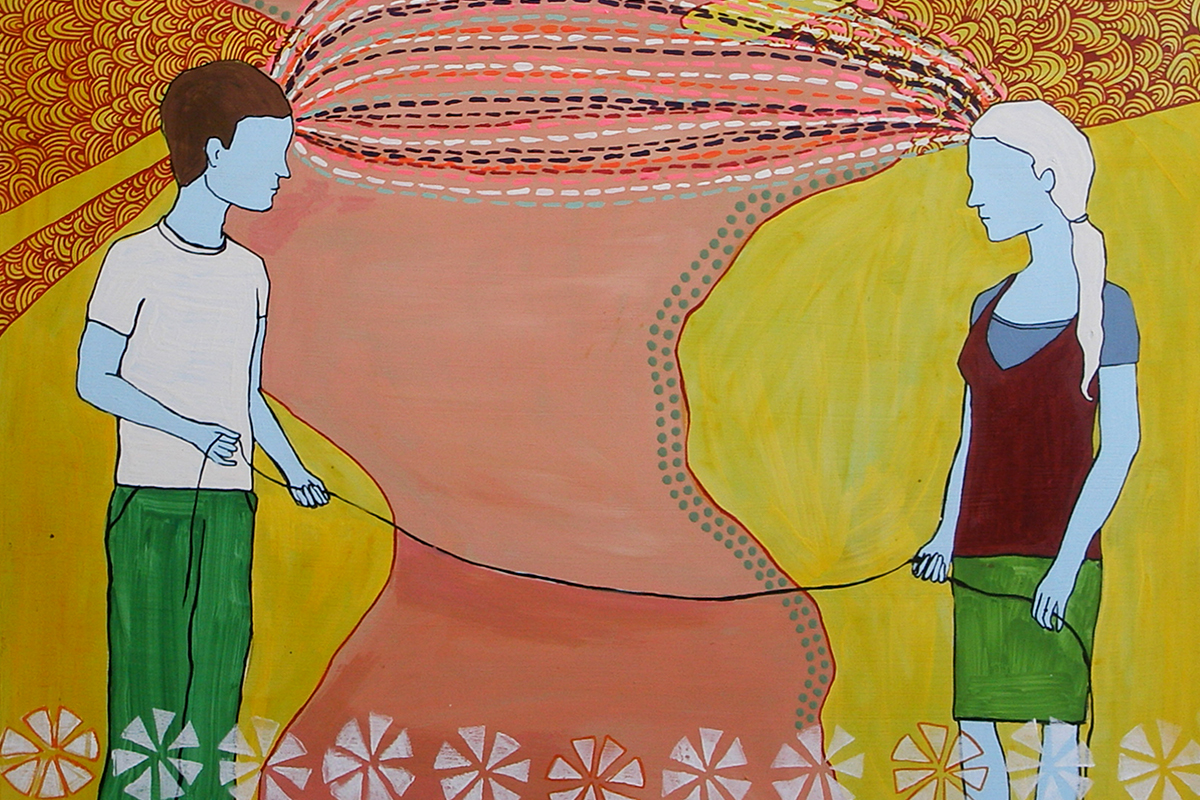How do you comfort someone without an embrace? How do you say goodbye without a parting hug? How do you score that job without your practiced firm handshake?
High-fives, handshakes, fist-bumps, hugs, cuddles, kisses, sex — some or all of these actions are a regular and important part of how many of us show familiarity and care. Or at least they used to be.
Now, during the coronavirus pandemic, our usual touchy-feely means of showing affection can literally kill someone. So — I hope —we’re trying to do things differently.
However, there is one group of people who have a lot (like thousands of years) more practice with the whole politely distanced thing: Orthodox Jews. Shomer negiah is the practice of refraining from physical contact with adults of different genders, excluding family members. It is practiced in various degrees of observance. Negiah in Hebrew literally translates to “touch,” so someone who is shomer negiah is “touch observant.” Usually, someone who is shomer negiah will not touch anyone of a different gender older than the age of bar or bat mitzvah except for their spouse. This practice is usually undertaken by Orthodox Jews who are especially observant of halacha (Jewish law).
Is it cis and heteronormative? ABSOLUTELY. Would I ever take on this practice myself? Well, no.
I grew up Reform in Northern California. Until a few years ago, I had never met an Orthodox person my age. Shomer negiah to me felt foreign, maybe even kind of offensive. In pre-pandemic times, I perceived it as something extreme and absolutist.
But throughout my escapades of a drive-thru graduation and masked neighborhood walks and social distanced picnic parties, I have been thinking about shomer negiah a lot. More than six months of living with the threat of coronavirus has led me to better appreciate this practice. Observant Jews have developed the means to express friendship and intimacy from a distance, and I think the rest of us have a lot to learn.
A very close friend of mine is Modern Orthodox and shomer negiah. We have never so much as high-fived. On the summer program on which we met, we played pick-up basketball on the same team to avoid guarding and bumping into one another.
When I complain about my quarantine-induced touching “abstinence” to him, he jokes that while I may be staying six feet apart from others for the sake of coronavirus, he is doing it for God. Our relationship has been a touchstone (no pun intended) for me in navigating this new social world.
My friend says that the essence of the idea of shomer negiah is that touch is holy and that even the smallest and most mundane acts of physicality are weighty and meaningful. When touch is reserved for those with whom one has made loving and powerful social commitments, it creates an additional sense of responsibility and intimacy.
Jewish law dictates a lot of holiness through separation. Shabbat from not-Shabbat, meat from milk, that kind of thing. I don’t keep Shabbat and I’m a vegetarian, but the concept of blessed separation has recently been sticking with me.
By staying apart, reserving touch for those with whom we live, we too express love and responsibility — both to those inside our social bubbles and those on the outside. But it can also feel, especially now, that we need some form of connection more than ever.
In addition to air hugs and strategically placing his arm in pictures to imitate an embrace, one of my friend’s main workarounds to the no-touching-girls thing is to make a deliberate effort to look people in the eyes, especially in moments of goodbyes. I distinctly remember him doing this when we parted ways in the airport following said summer program. When everyone else was giving rushed hugs, he stopped, made eye contact, and told me how our friendship was important to him. Obviously, that has stayed with me.
As eyes are conveniently located above the mask-zone, I’ve been trying to work on my eye-contact when I see people. As my close friends have departed for college and gap years, I’ve tried to use my goodbyes to emphasize my love and my desire to stay in touch. And I’m trying not to pretend like things are normal. This is wacky and uncomfortable and tragic, and acting like it’s not only makes things worse.
While I’m sure as hell not doing this when a vaccine comes around, learning about shomer negiah has made me think about the ways I will appreciate and treat physical interaction when it again becomes appropriate. As I patiently await the days when I will have suite mates and sleepovers and attend packed college parties and all the rest, as I look my friends in the eyes and try to tell them what they mean to me: I recognize how, in my own way, I have come to see touch as holy, too.



